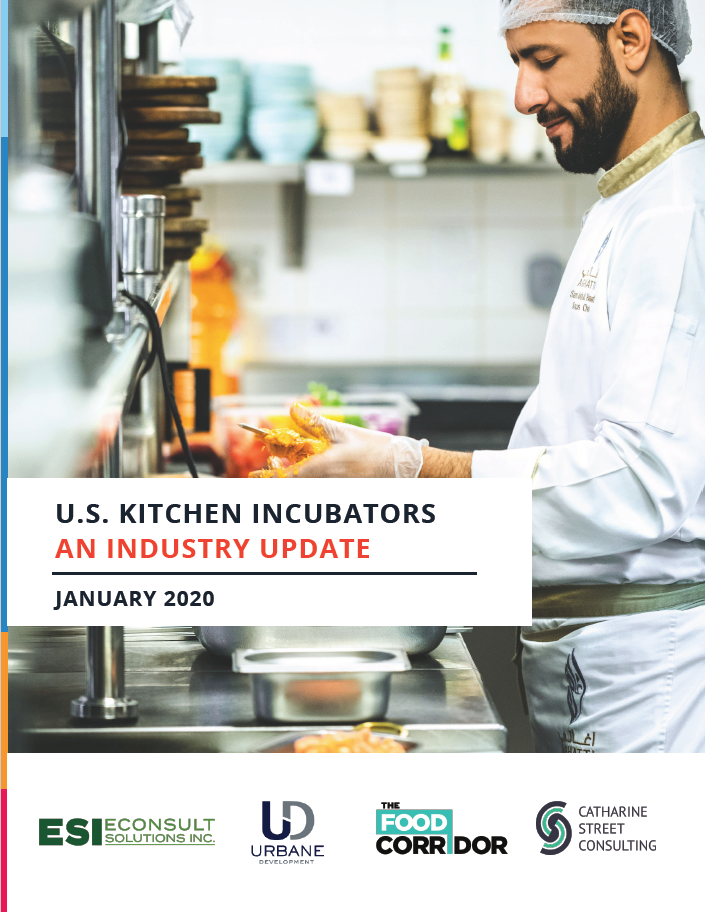It’s here!
The Food Corridor is super excited to announce the findings of the 3rd national survey of the US kitchen incubator industry. This report was produced in conjunction with Catharine Street Consulting, Urbane Development, and Econsult Solutions in response to the tremendous growth and evolution in the shared kitchen industry since the first report in 2013.
Why now?
Since the 2013 report, we have seen significant changes in the food landscape that have necessitated new ways to leverage local food infrastructure and respond to changing consumer demands. Trends relevant to shared kitchens or kitchen incubators include:
1. Stricter food regulations have increased the entry cost for commercial-grade food production, making more desirable the fractional ownership model seen in many other facets of the sharing economy.
2. Kitchen incubators represent the intersection of the growing popularity of a number of contemporary movements, such as entrepreneurship, the local craft economy, and artisanal food production.
3. Food is increasingly seen as an issue through which to pursue wellness, social justice, and equitable economic development
The findings
This report is expected to be widely utilized by individual participants and industry advocates, as was the case with the previous two reports in 2013 and 2016. It uses an extensive survey of practitioners around the country to provide invaluable information on the state of the kitchen incubator industry in the US and its evolution over time on key operational metrics such as square footage, staffing, and equipment/services offered. This time, that survey was sent to a broader range of participants in the shared-use food manufacturing space, which combined with a deeper dive into industry trends, allows for a richer exploration of what is next for the industry. We appreciate all who responded to the survey, especially the clients of The Food Corridor and the members of the Network for Incubator and Commissary Kitchens. Some key takeaways:
1. While the industry has come a long way in a short time, it has yet to formalize, and so missing standards and inconsistent practices create a perception of uncertainty, which yields reduced monetary and programming support.
2. Lack of data, particularly in measuring the extent to which work is advancing economic inclusion, limits the case for funding.
3. Both facility operators and individual users demand more support resources. Operators seek support with evidence-based entrepreneurial programming and development. Food entrepreneurs desire distribution/logistics support, access to trained labor, affordable sourcing, and technical assistance around branding/sales.
4. Lack of access to working capital is a major barrier for both facility operators and member businesses in getting off the ground and in achieving growth aspirations.

